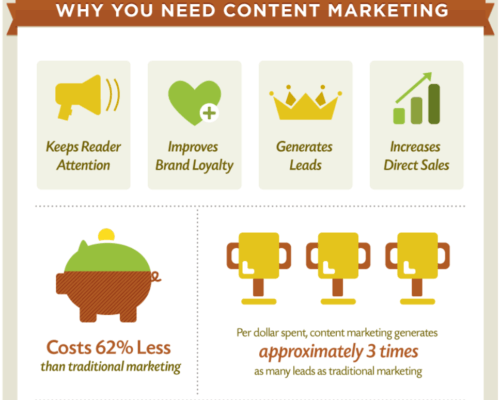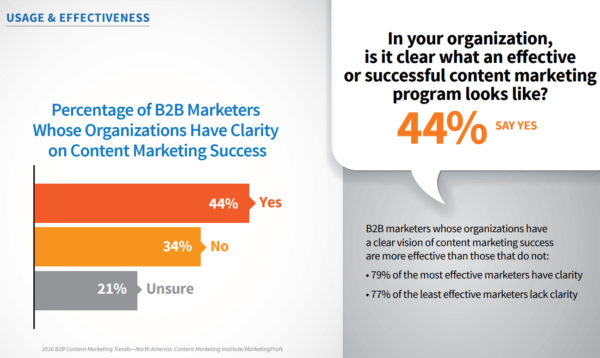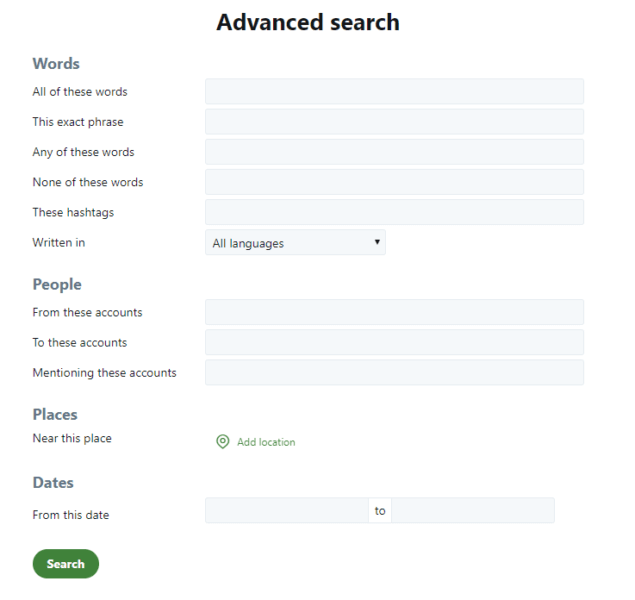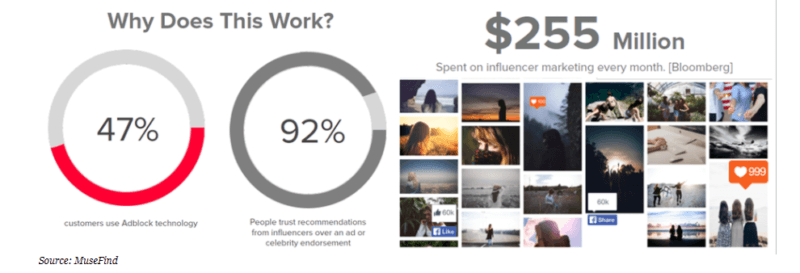Contributor Kristopher Jones outlines seven tried-and-true content promotion strategies that will drive traffic to your content and website.
It’s no secret a well-executed content marketing campaign can deliver a solid return on investment.
According to Demand Metric, content marketing generates three times more leads than most outbound marketing strategies at 62 percent less cost.
As marketers pad their budgets with more money to invest in content marketing this year, one strategy that often gets overlooked is content promotion.
According to a survey by the Content Marketing Institute, 55 percent of B2B marketers were not even sure what a successful content marketing campaign looked like!
Content without promotion is like link building without links or creating a landing page without a call to action. That’s why promotion should take equal focus with creation.
Let’s look at seven tried-and-true content promotion strategies that will drive traffic to your content and website.
1. Paid social promotion
Paid social promotion can be one of the most precise strategies available to market your content to people who are interested in and most likely to engage with your content.
For example, by using Facebook’s Audience Insights, businesses can segment audience lists by select boundaries, such as demographics, psychographics and intent. This allows marketers to create audience segments that are more in line with their brand and specific topics of content on their website. There are several benefits of paid social promotion:
- Increase website traffic with relevant visitors.
- Generate more conversions by marketing to people with high purchasing intent.
- Familiarize users with your brand.
Even advertising content over native or display ads can help to increase brand recall for customers who come across your website in future searches. Only now, they’ll think of your brand as a bit of an authority because they’re already familiar with your brand.
Paying to promote your content over advertising channels is a good way to cut through the noise and the competition.
Paid promotion is also an excellent strategy to target users who have interacted with your website or blog in the past month. Remarketing not only increases your chance of reclaiming a missed conversion, but it also helps to foster brand loyalty by providing them useful content based on their past consumption.
Before undergoing a paid promotion strategy, it’s key to have your goals outlined. These can include increasing readership for your content or generating more conversions on your website. With these in mind, you can quantify the impact of these strategies and assess their success.
2. Targeted sharing
Facebook is no longer the business to consumer (B2C) marketing giant it once was; after its last algorithm update, it limited organic reach for business posts on the platform.
One way to reach more people over social media platforms like Facebook and Instagram is through targeted sharing.
Targeted sharing is essentially tagging someone in a post in hopes that they will share your content with their audience. Here are some ways to do that:
- Link to people in the snippet who would be interested in your article.
- Link to sources featured in the article directly in the snippet.
- Directly engage industry peers with a question or point of debate in the snippet to curate conversation over a topic.
Twitter’s advanced search tool allows you to find people in your niche who are close to you geographically, using certain hashtags and more:
Instagram recently introduced a “follow” hashtag that allows users to view content in their newsfeed using a certain hashtag. This has opened up an entirely new platform for businesses to reach more customers over Instagram who are already interested in your industry.
3. Use videos over social media
Another proven method to cut through the noise on social media channels is to include videos in your content.
The statistics around video marketing are truly staggering:
- Google states that half of internet users “search for a video related to a product or service before visiting a store.”
- Views on sponsored videos on Facebook increased 258 percent between June 2016 and June 2017.
From my experience, including a video on a landing page can significantly increase your conversion rate. In my opinion, the demand for video content over social media far outpaces the demand for written content.
Video can also be more engaging than written content. A compounding or viral video is the definition of a gift that keeps on giving.
Of course, there’s always a caveat. Hosting a long, informative video on your content can discourage click-throughs to your landing page, especially if it’s used to promote written content. I suggest posting a teaser video, an eye-catching image or a graphics interchange format (GIF) in your content to entice users to navigate to the landing page.
4. Influencer marketing
I believe influencer marketing is one of the most underutilized tools in our industry.
Influencer marketing is powerful in theory. Not only will influencer shares expose your content to a new audience, it confers credibility in the eyes of that audience.
According to a study from MuseFind, 92 percent of people trust influencers more than advertisements or celebrities.
There are many ways to approach this strategy: You can reach out to influencers directly in your industry to share your content or engage in a promotion partnership.
Consider using tools like Followerwonk and Intellifluence to find active influencers in your industry to reach out to.
You can also mention an influencer within your content or link to them in a social media snippet to attract their attention. This increases the likelihood that they will share your content to promote their own brand. In turn, this increases your content’s quantity of shares and link opportunities.
5. Content syndication
Content syndication is not new to search engine optimization (SEO), but it’s not often the focus of many content marketing strategies. Content syndication is a great strategy to instantly expand your audience reach with little effort.
Do your research before identifying a site for syndication. Ask about their analytics to see what their visitor traffic is like and monitor keywords to identify the topics of discussion being held.
If you decide to syndicate content on sites like LinkedIn, Medium or community forums, it’s best to be picky. Only share your best content.
If you do participate in a content community, understand that half of your responsibility is also sharing other people’s content to remain an active member. This will help establish relationships across your industry for potential link opportunities and shares.
6. Link building
Link building remains one of Google’s three most important ranking factors when determining organic rank. It is a good idea to increase your content’s reach and visibility by improving its organic backlink signals.
It’s important to remember that link building needs to be strategic when promoting a specific webpage. I wouldn’t put a lot of effort into building links to a topical blog post, evergreen content or webpages that serve a valuable function in your website’s information and sales funnel.
Here are just a few basic link-building strategies to promote content to a wider audience:
- Guest post on authoritative publications with a contextual link back to your content.
- Engage in broken link building using manual outreach to offer more value to existing content.
- Email industry thought leaders about a piece of your content that would be valuable to their future research.
Ironically, the best link-building strategy out there is to craft high-quality content that people organically link back to on their own. Of course, this requires promotion for people to find this content in the first place, but hopefully, you’ll get some ideas from this post to help with that.
7. Personalized email marketing
Email marketing is a great way to market to customers who are already interested in your brand. Email marketing has the benefit of increasing customer retention while also delivering shares and links right to your content.
Not everyone on your email marketing list will jump at the chance to read your next blog post. Here are some basic strategies to increase email engagement:
- Design an e-newsletter to promote recent posts to your blog or showcase your most viral content for the month.
- Segment subscriber lists based on their interaction with your site.
- Personalize emails to include the name of the recipient, as well as pertinent information related to their engagement on your site.
- Include interactive content, such as a fun GIF or video, to make emails stand out and warm up subscribers to future emails.
- Conduct split testing on headlines and messages and measure their impact.
Final thoughts
Content marketing has taken on a life of its own as a buzzword in our industry. With reduced organic reach over both search and many social channels, it’s never been more important to focus on promotion strategies that cut through the noise and get content discovered.
Source: 7 marketing and promotion tactics to get your content discovered – Search Engine Land

 As marketers pad their budgets with more money to invest in content marketing this year, one strategy that often gets overlooked is content promotion.
As marketers pad their budgets with more money to invest in content marketing this year, one strategy that often gets overlooked is content promotion. Content without promotion is like link building without links or creating a landing page without a call to action. That’s why promotion should take equal focus with creation.
Content without promotion is like link building without links or creating a landing page without a call to action. That’s why promotion should take equal focus with creation.
 There are many ways to approach this strategy: You can reach out to influencers directly in your industry to share your content or engage in a promotion partnership.
There are many ways to approach this strategy: You can reach out to influencers directly in your industry to share your content or engage in a promotion partnership.
Recent Comments